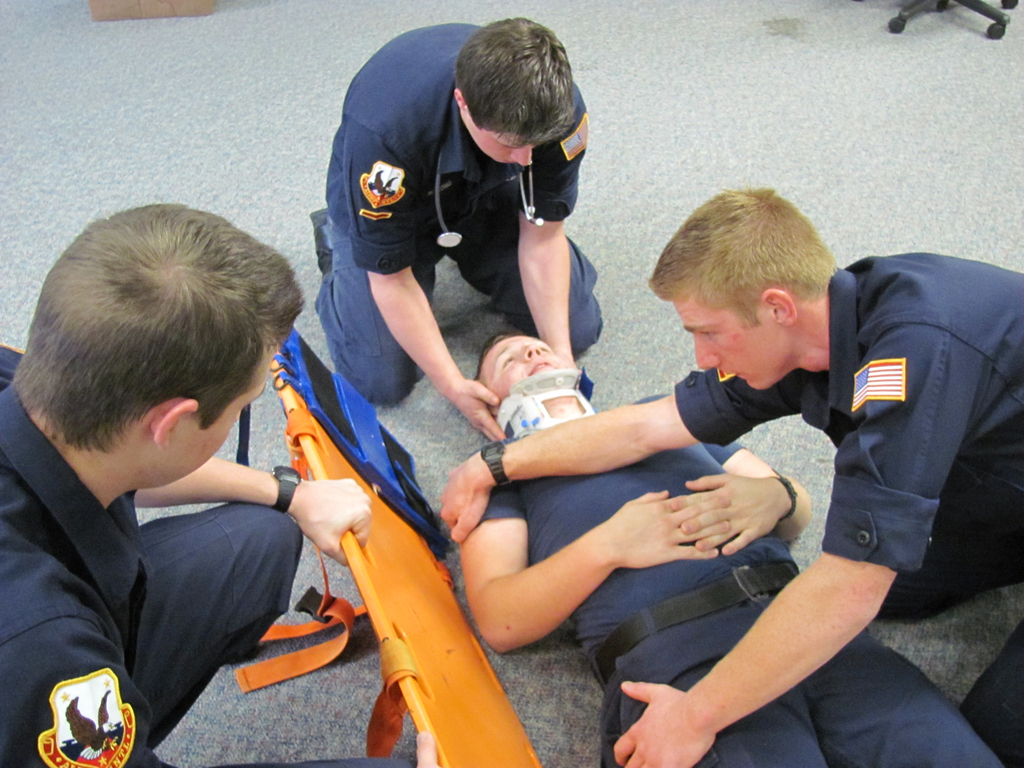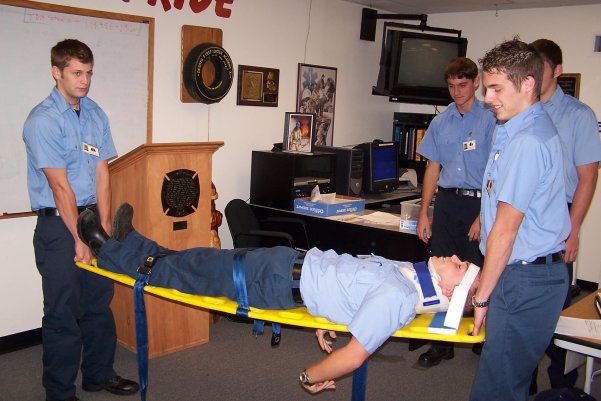EMT Interview
 I’m Tim, I’m a twenty year old student here at Skyline College, I’ve been going here for a few semesters now and…I chose to go into the EMT program because my brother was taking the class and he talked me into it and I take Biology and physiology, anatomy and I liked all of those and I like talking about pathophysiology, so I thought it would be interesting to make it applicable to use the things that we have learned and talked about so my brother and I signed up for the class and wound up really enjoying it and that’s kind of how it happened.
I’m Tim, I’m a twenty year old student here at Skyline College, I’ve been going here for a few semesters now and…I chose to go into the EMT program because my brother was taking the class and he talked me into it and I take Biology and physiology, anatomy and I liked all of those and I like talking about pathophysiology, so I thought it would be interesting to make it applicable to use the things that we have learned and talked about so my brother and I signed up for the class and wound up really enjoying it and that’s kind of how it happened.
Again, it was the hands on aspect, you get to talk about anatomy, physiology and then you get to apply some of the things you’re learning, you learn a little bit about being as an arterial leading and how to control them and so, it is the dynamic of being able to talk about something and then to do it hands on, makes the learning a little bit more fun, You can be looking at a twelve or twenty hour shift depending on where you work, some counties will let you do five, eight hour shifts but typically you’re looking at a twelve hour shift and there’s a couple of different things you can get into, you can be an ER tech or you’re stationed at a hospital and you, you are in the ER, you’re helping out the nurses, helping out the doctors, moving patients, taking care of those things or you’re in an ambience.
So for the most part is EMT basic, what you’re doing is basic transports, to and from the hospital, picking up people with minor injuries but mainly just hospital transports or to and from the hospital from their home if they’re unambulatory, but yeah typically a lot of work, twelve hour shifts but a lot of hands on, you get to use everything you learned in class and apply it and think critically.
It’s probably the cripple thinking and the hands on aspect of it, I don’t like to sit still for too long so getting out and doing things, lifting, moving, talking and having to think on the fly, you’ve got this patient who’s showing these symptoms, what’s wrong, what can we do to stabilize them, to transport them, do we need additional help.
 Don’t we being able to think for yourself and do things for yourself is great and I much prefer that to sitting and writing and all that kind of stuff. I absolutely….EMT especially have a pretty much high turnover…and we have two programs, we have the CSM program, we also have the skyline program and AMR is one of the biggest service providers out here and they…I was talking to them recently and I think they said about fifty percent of their current workforce were skyline graduates and/or CSM graduates so, we have a pretty good niche.
Don’t we being able to think for yourself and do things for yourself is great and I much prefer that to sitting and writing and all that kind of stuff. I absolutely….EMT especially have a pretty much high turnover…and we have two programs, we have the CSM program, we also have the skyline program and AMR is one of the biggest service providers out here and they…I was talking to them recently and I think they said about fifty percent of their current workforce were skyline graduates and/or CSM graduates so, we have a pretty good niche.
Again, probably the hours, I’ve worked a lot but five, six hours shifts and…even that can be kind of tiresome but moving into a twelve hour, twenty four hour shift, a little…a little bit more exhausting so that aspect is probably the most surprising….that kind of day, twelve hour work day.
If you’re coming into this fresh, you need to pretty committed, it’s a seven year class and that alone is pretty intense, a lot of reading, a lot of study time, study groups, if you are going to do this, it’s a lot of fun but you have to willing to put in the time to make it successful, so, just plan ahead, make sure you’ve got the time to commit yourself to the class.
